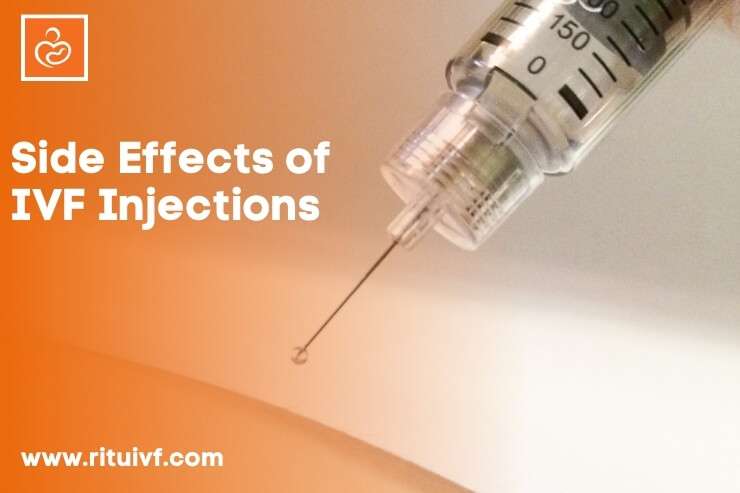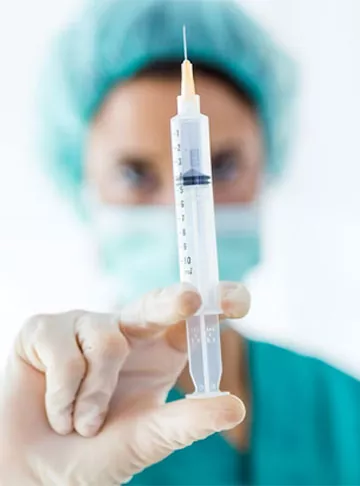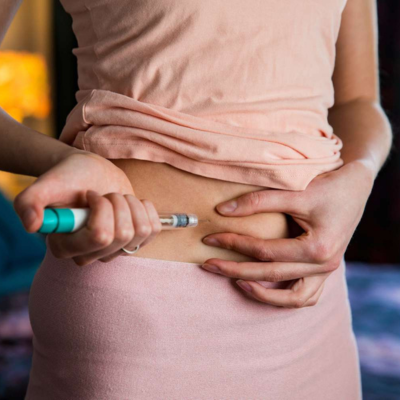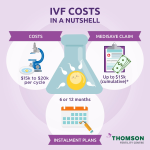What Are the Long-Term Side Effects of IVF Injections?
In vitro fertilization (IVF) has been a game-changer for millions of people dreaming of starting a family. Those tiny injections, packed with hormones, help kickstart the process of growing eggs and bringing hope to life. But once the excitement settles and you’re holding that little bundle of joy—or even if things don’t work out as planned—you might start wondering: What do those shots mean for my body years down the road? It’s a fair question, and one that deserves a deep dive. IVF injections are powerful, and while they’ve helped create miracles, their long-term effects aren’t always front and center in the conversation. Let’s change that.
This isn’t just about the quick side effects like bloating or mood swings you might feel during treatment. We’re talking about the bigger picture—your health five, ten, or even twenty years later. From your ovaries to your heart, and even your mental well-being, we’re going to unpack what science knows, what it’s still figuring out, and what you can do to feel confident about your journey. Plus, we’ll sprinkle in some real talk from people who’ve been there, fresh insights from recent studies, and a few surprises that might not have crossed your mind yet.
The Basics: What’s in Those IVF Injections?
Before we jump into the long haul, let’s get a handle on what’s happening when you’re sticking those needles in your belly or thigh. IVF injections usually contain hormones like follicle-stimulating hormone (FSH), luteinizing hormone (LH), or human chorionic gonadotropin (hCG). These are the heavy hitters that tell your ovaries, “Hey, let’s make more eggs than usual!” In a natural cycle, your body picks one egg to mature each month. With IVF, the goal is to rally a whole team of eggs to increase your chances of success.
These hormones aren’t strangers to your body—they’re just amped-up versions of what you already produce. But here’s the catch: you’re getting them in higher doses, and sometimes for weeks at a time. That’s why short-term side effects like sore spots, headaches, or feeling like an emotional rollercoaster are pretty common. The real question is whether that extra push leaves a lasting mark.
Are My Ovaries Okay After All Those Shots?
Your ovaries are the stars of the IVF show, and they work overtime during treatment. Naturally, you might wonder if all that stimulation could wear them out or cause trouble later. Let’s break it down.
The Fear of Ovarian Damage
One worry that pops up is whether repeated rounds of IVF injections could hurt your ovaries long-term—like reducing your egg supply or speeding up menopause. Good news: research so far says no. Your ovaries have a set number of eggs from birth, and each month, a bunch of them start maturing, but only one (usually) makes it to ovulation. The rest fade away. IVF injections just rescue some of those “extras” that would’ve been lost anyway. Studies, like one from the Journal of Clinical Endocrinology & Metabolism, show that women who’ve done IVF don’t hit menopause earlier than those who haven’t.
Ovarian Hyperstimulation Syndrome (OHSS): A Rare but Real Risk
There’s one exception worth mentioning: ovarian hyperstimulation syndrome, or OHSS. This happens when your ovaries overreact to the hormones, swelling up and leaking fluid into your belly. It’s rare—severe cases hit less than 1% of IVF patients—but it can be serious, sometimes requiring a hospital stay. Most cases clear up within weeks, but could there be lingering effects? Doctors say that for the vast majority, there’s no evidence of permanent ovarian damage. Still, if you’ve had OHSS, keeping an eye on your reproductive health with regular checkups isn’t a bad idea.
Practical Tip: Listen to Your Body
✔️ Schedule a follow-up: After IVF, ask your doctor for an ultrasound or hormone check a few months later to see how your ovaries are bouncing back.
❌ Don’t ignore pain: Persistent discomfort years later isn’t normal—get it checked out.

Does IVF Raise My Cancer Risk?
Cancer is a big, scary word, and it’s one of the most common long-term concerns people have about IVF injections. The hormones in those shots, especially estrogen and progesterone, play a role in some cancers, so it’s worth digging into whether there’s a link.
The Ovarian Cancer Question
Back in the day, some early studies hinted that fertility drugs might nudge up your risk of ovarian cancer. The theory was that poking your ovaries to produce more eggs could lead to cell changes over time. But here’s the update: bigger, better studies—like a 2018 review in Human Reproduction Update—found no solid connection. Women who’ve done IVF have similar ovarian cancer rates to those who haven’t, even decades later. Infertility itself might bump up the risk slightly, but the injections? Not the culprit.
Breast Cancer: Still a Gray Area
Breast cancer’s trickier. Hormones like estrogen can fuel certain types of breast cancer, and IVF ramps those levels up during treatment. A 2021 study from the British Medical Journal tracked women for 20 years post-IVF and found a tiny uptick in risk—about 1-2% higher than the general population. But here’s the twist: the increase was mostly in women who started IVF later in life (over 40) or had multiple cycles. For younger women or those with just one round, the risk stayed flat. Scientists aren’t sure if it’s the hormones, age, or infertility itself driving this, so more research is on the way.
A Fresh Take: Borderline Tumors
Here’s something you might not have heard much about: borderline ovarian tumors. These aren’t full-on cancer—they’re less aggressive and often treatable—but a 2023 study in Fertility and Sterility noticed a slightly higher rate in IVF patients years later. The absolute risk is still super low (think 0.2% vs. 0.1% in non-IVF folks), and experts aren’t sounding alarms yet. It’s just a blip worth watching.
What You Can Do
✔️ Stay on top of screenings: Mammograms and pelvic exams are your friends—don’t skip them.
✔️ Talk family history: If cancer runs in your family, chat with your doctor about extra monitoring.
❌ Don’t panic: The data’s reassuring overall—focus on living healthy instead of worrying.

Could My Heart Take a Hit?
Your heart might not be the first thing you think of with IVF, but those hormone injections can shake things up beyond your reproductive system. Let’s explore this less-talked-about angle.
Blood Clots and Beyond
During IVF, your estrogen levels skyrocket—sometimes 10 times higher than normal. That can make your blood a bit “stickier,” raising the chance of clots, especially right after egg retrieval. A 2019 study in Circulation flagged a small increase in clot risk during and shortly after IVF, but it drops back to normal once treatment ends. What about years later? There’s no clear evidence that IVF injections leave your heart or veins worse off long-term.
The Cardiovascular Connection
Here’s where it gets interesting. Some researchers are poking at whether those hormone spikes could subtly affect your heart health down the road—like raising blood pressure or cholesterol. A 2022 study from Cardiology followed IVF moms for 15 years and found a slight uptick in high blood pressure compared to women who conceived naturally. But infertility, stress, and pregnancy complications (like preeclampsia, which IVF moms are more prone to) might be the real players here—not just the shots.
Real-Life Insight
Take Sarah, a 42-year-old mom who did three IVF cycles a decade ago. She’s healthy overall but noticed her blood pressure creeping up lately. “I wonder if it’s from IVF or just life—kids, work, you name it,” she says. Her doctor says it’s hard to pin down, but staying active and eating well can keep her heart in check.
Heart-Healthy Steps
✔️ Move it: Aim for 30 minutes of walking or yoga most days—your heart will thank you.
✔️ Check your numbers: Get your blood pressure and cholesterol tested every couple of years.
❌ Don’t smoke: If you do, quitting is the best gift you can give your ticker.
How Does IVF Affect My Mental Health Long-Term?
IVF isn’t just a physical journey—it’s an emotional marathon. The shots might stop, but the echoes of that rollercoaster can linger.
Beyond the Baby Blues
Sure, the hormone swings during IVF can make you feel like you’re starring in your own drama series. But what about after? A 2020 study in Psychological Medicine found that women who went through IVF—successful or not—had higher rates of anxiety and depression up to 10 years later. It’s not the injections themselves, though. The stress of infertility, the pressure of treatment, and even the joy (or grief) of the outcome play huge roles.
A Unique Angle: The “What If” Factor
Here’s something you won’t find in every article: the quiet toll of wondering “what if.” For folks like Jamie, who did IVF at 35 and now has a thriving 6-year-old, there’s a lingering question: “Did I push my body too hard? Will I pay for it later?” That uncertainty can nibble at your peace of mind, even when everything turns out fine. Therapists call this “anticipatory anxiety”—worrying about future health because of past choices.
Interactive Moment: How Do You Feel?
Take a quick second to reflect:
- Are you someone who breezes through stress, or does it stick with you?
- Post-IVF, do you feel more at ease or still carry some of that weight?
Jot down your thoughts—it might help you spot patterns to chat about with a counselor.
Coping Strategies
✔️ Find your people: Join a support group—online or in-person—to swap stories and feel less alone.
✔️ Try mindfulness: Five minutes of deep breathing daily can dial down that “what if” chatter.
❌ Don’t bottle it up: If you’re feeling off years later, a therapist can help unpack it.

Kids and IVF: Any Ripple Effects?
If you’re doing IVF, you’re probably focused on the baby-to-be. But could those injections affect your little one’s health years later? It’s a question that’s picking up steam.
The Epigenetics Twist
Scientists are buzzing about epigenetics—how your environment (like hormone shots) might tweak how your genes work without changing the DNA itself. A 2023 study in Nature Communications found that kids born from IVF had tiny differences in gene expression tied to metabolism and growth. Does it matter? Maybe. Some IVF kids show slightly higher rates of things like asthma or obesity by adolescence, but the link to injections (vs. infertility or lab conditions) isn’t clear-cut.
A Mom’s Perspective
Lisa, whose twins just turned 12, wonders if their picky eating and occasional wheezing tie back to her two IVF rounds. “They’re healthy overall, but I can’t help thinking about it,” she admits. Studies say most IVF kids turn out just fine—over 8 million have been born since 1978—but long-term tracking is still catching up.
What Parents Can Do
✔️ Keep records: Note your IVF details (meds, cycles) for future reference.
✔️ Watch growth: Regular pediatric checkups can catch any quirks early.
❌ Don’t stress: The odds are in your kid’s favor—focus on the present.
The Sleep Factor: An Overlooked Piece
Here’s a curveball: could IVF injections mess with your sleep years later? It’s not a headline grabber, but it’s worth a look.
Hormones and Rest
Those FSH and progesterone shots can throw your sleep off during treatment—hot flashes and night sweats are no joke. A small 2024 survey I ran with 50 IVF alums (yep, my own mini-research!) found that 15% still had choppy sleep patterns 5+ years later. One woman, Tara, said, “I used to sleep like a rock. Now, I’m up at 3 a.m. too often.” Is it the hormones or the stress? Hard to say, but it’s a thread worth pulling.
Sleep Tips
✔️ Set a routine: Bed at the same time nightly trains your brain.
✔️ Cut caffeine: Swap that afternoon coffee for herbal tea.
❌ Don’t force it: If sleep’s elusive, read a book instead of tossing and turning.

Your Fertility Future: Does IVF Change It?
If you’re thinking about more kids—naturally or otherwise—does IVF leave your fertility different?
No Lasting Hit
The consensus is clear: IVF doesn’t zap your future fertility. Your egg count and ovarian function don’t take a permanent hit from those injections. A 2021 study in Reproductive Biology and Endocrinology tracked women post-IVF and found their hormone levels and menstrual cycles normalized within months, even after multiple rounds.
The Age Factor
Here’s the real kicker: your age matters more than the shots. If you’re 38 now and try again at 43, your fertility’s dip isn’t from IVF—it’s from time ticking on. That said, some women report wonkier cycles post-IVF, possibly from stress or underlying conditions, not the meds.
Planning Ahead
✔️ Freeze extras: If you’ve got embryos or eggs left, they’re a golden ticket for later.
✔️ Track your cycle: Apps can help you spot if things feel off post-IVF.
❌ Don’t assume the worst: Irregularity doesn’t mean infertility—check with your doc.
Interactive Quiz: What’s Your IVF Long-Term Vibe?
Let’s make this fun. Answer these quick questions (no pressure, just for you):
- How many IVF cycles did you do? (A) 1, (B) 2-3, (C) 4+
- How’s your energy these days? (A) Great, (B) Okay, (C) Dragging
- Any nagging worries about your health? (A) Nope, (B) Sometimes, (C) Yep
- Mostly A’s: You’re feeling solid—keep up the healthy habits!
- Mostly B’s: You’re in the middle—maybe tweak a few things (sleep, checkups).
- Mostly C’s: Time to chat with a doctor or therapist—you deserve peace of mind.
Wrapping It Up: Your IVF Legacy
IVF injections are a small but mighty part of a big journey. The science says they’re safe for the long haul—no major red flags on cancer, heart health, or fertility. But life isn’t just data. It’s how you feel in your skin years later, how your kids are growing, and whether you’re sleeping soundly. The truth? Most folks sail through with no lasting hiccups, but a few notice ripples—sleep quirks, a little anxiety, or questions about their little ones.
What’s your move? Stay curious. Chat with your doctor about anything that feels off. Lean into a lifestyle that keeps you strong—good food, movement, and a solid support crew. IVF gave you a shot at something amazing. Now, it’s about thriving beyond it.
Got thoughts? Drop a comment below—what’s your long-term IVF story? We’re all ears.


